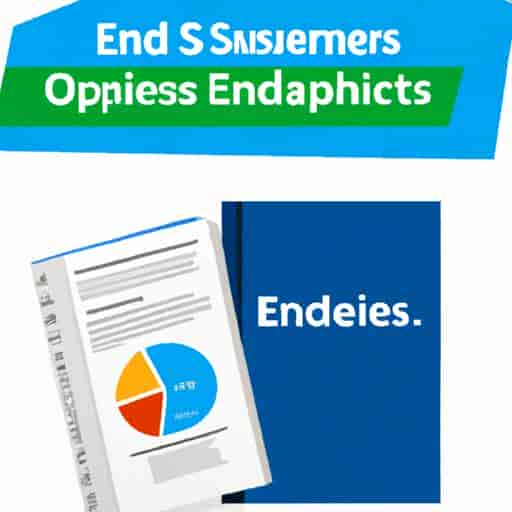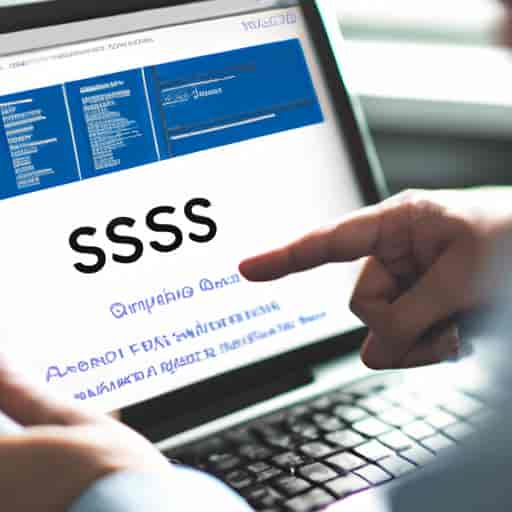Are you struggling to analyze large data sets for your business or research? You are not alone. With the fast pace of digitalization, data analysis has become a crucial aspect of modern-day businesses and research. However, analyzing massive data sets can be time-consuming, tedious, and challenging, especially for beginners. The good news is that SAS Enterprise Guide can make analyzing data a breeze.
SAS Enterprise Guide is a powerful data analysis tool that simplifies data analysis, reporting, and visualization. It is renowned for its user-friendly interface, making it a top choice for beginners and experts alike. However, to fully unlock SAS Enterprise Guide’s potential, you need to learn through tutorials.
In this article, we will delve into the significance of SAS Enterprise Guide and why learning through tutorials is essential. We will also provide a comprehensive guide on SAS Enterprise Guide tutorials, covering beginner and advanced levels. By the end of this article, you will have the knowledge to unleash the full potential of your data analysis with SAS Enterprise Guide.
Let’s get started!
Understanding SAS Enterprise Guide

Overview of SAS Enterprise Guide
SAS Enterprise Guide is a data analysis tool that allows users to access, manage, and analyze data from various sources. It offers an intuitive interface that simplifies data analysis and reporting, making it an excellent choice for both beginners and experts. With SAS Enterprise Guide, you can import data from various sources, including Excel, Access, CSV, and SQL.
Features and Functionalities of SAS Enterprise Guide
SAS Enterprise Guide comes with a wide range of features and functionalities that make data analysis a breeze. Some of the top features and functionalities include:
Data Preparation
SAS Enterprise Guide allows users to prepare data for analysis by filtering, sorting, and transforming data. It also offers data profiling capabilities that enable users to understand data better.
Data Analysis
SAS Enterprise Guide offers a wide range of data analysis capabilities, including descriptive statistics, regression analysis, and forecasting. It also has a visual analytics feature that allows users to create charts, graphs, and other visualizations.
Reporting
SAS Enterprise Guide has a powerful reporting feature that enables users to create custom reports quickly. It allows users to create reports in various formats, including PDF, HTML, and RTF.
Benefits of Using SAS Enterprise Guide
SAS Enterprise Guide is an excellent tool for data analysts and researchers. It comes with a wide range of benefits, including:
User-Friendly Interface
SAS Enterprise Guide has a user-friendly interface that simplifies data analysis and reporting. It offers a drag-and-drop interface that makes it easy to import and manipulate data.
Time-Saving
SAS Enterprise Guide allows users to automate data analysis tasks, saving them time and effort. It also offers data profiling capabilities that enable users to understand data faster.
Comprehensive Analysis
SAS Enterprise Guide offers a wide range of data analysis capabilities, including descriptive statistics, regression analysis, and forecasting. It also has a visual analytics feature that allows users to create charts, graphs, and other visualizations.
Better Decision Making
SAS Enterprise Guide provides users with comprehensive data analysis capabilities, enabling them to make better decisions based on data insights. It also allows users to create custom reports that are easy to understand and share with stakeholders.
With these features and benefits, SAS Enterprise Guide is an excellent tool for anyone looking to analyze data quickly and efficiently.
Advantages of Using SAS Enterprise Guide Tutorial
Are you wondering why you should invest your time and resources in learning SAS Enterprise Guide through tutorials? Here are some advantages of using SAS Enterprise Guide tutorial that will convince you to take the first step:
1. User-Friendly Interface
SAS Enterprise Guide has a user-friendly interface that makes it easy to navigate and use. However, through tutorials, you can learn how to use SAS Enterprise Guide more efficiently, saving you time and reducing errors.
2. Customizable for Your Needs
SAS Enterprise Guide is customizable to meet your specific needs. Through tutorials, you can learn how to customize SAS Enterprise Guide to suit your requirements, making your data analysis experience more efficient and enjoyable.
3. Comprehensive Learning
SAS Enterprise Guide tutorials provide comprehensive learning that covers various topics, from beginner to advanced levels. You can learn at your own pace, ensuring that you have a solid understanding of SAS Enterprise Guide’s functionalities.
4. Cost-Effective
SAS Enterprise Guide tutorials are cost-effective compared to traditional learning methods. You can access tutorials online at any time, anywhere, without incurring additional expenses such as travel or accommodation.
5. Increased Productivity and Efficiency
By learning SAS Enterprise Guide through tutorials, you can increase productivity and efficiency in data analysis. You can learn how to use SAS Enterprise Guide to automate repetitive tasks, reducing the time and effort needed for data analysis.
How SAS Enterprise Guide Tutorial Can Help Individuals and Businesses
SAS Enterprise Guide tutorials can help individuals and businesses in various ways, including:
- Better decision-making through accurate data analysis
- Improved data management and organization
- Enhanced collaboration and communication among team members
- Increased productivity and efficiency in data analysis
- Reduced costs and time spent on data analysis
Why SAS Enterprise Guide Tutorial is Essential for Professionals
SAS Enterprise Guide tutorial is essential for professionals, especially those in the data analysis field. By learning SAS Enterprise Guide through tutorials, you can:
- Stay up-to-date with the latest data analysis trends and techniques
- Improve your skills and expertise in data analysis
- Increase your job prospects and career opportunities
- Boost your confidence in handling large data sets
- Enhance your problem-solving and critical thinking abilities
In the next section, we will cover SAS Enterprise Guide tutorials for beginners, providing a step-by-step guide on how to use SAS Enterprise Guide.
SAS Enterprise Guide Tutorial for Beginners
Are you new to SAS Enterprise Guide? Don’t worry; we’ve got you covered. In this section, we will cover the basics of SAS Enterprise Guide and provide a step-by-step guide on how to use it. We will also provide some tips and tricks to help you get started.
Basic SAS Enterprise Guide Concepts
Before diving into SAS Enterprise Guide, it’s essential to understand some fundamental concepts. SAS Enterprise Guide is a graphical user interface that provides access to SAS programming. It is designed to simplify data analysis, reporting, and visualization. SAS Enterprise Guide comprises several components, including the Projects tab, Data tab, and Results tab.
The Projects tab allows you to create and manage projects, which are collections of SAS programs, data sets, and other files. The Data tab allows you to manage your data sources and perform data manipulation tasks. The Results tab displays the results of your SAS programs, including graphs and tables.
Step-by-Step Guide on How to Use SAS Enterprise Guide
- Launch SAS Enterprise Guide and create a new project.
- Add your data source to the project by selecting the Data tab and clicking on “Add Data.”
- Perform data manipulation tasks such as sorting, filtering, and merging by using the Data tab.
- Create a SAS program by selecting the Program tab and clicking on “New Program.”
- Write your SAS code and execute it by clicking on the “Run” button.
- View your results by selecting the Results tab.
Tips and Tricks for Beginners
Here are some tips and tricks to get you started with SAS Enterprise Guide:
- Take advantage of the SAS Enterprise Guide tutorials available online. They can help you learn the basics quickly.
- Use the Projects tab to organize your work and keep track of your progress.
- Use the Data tab to manipulate your data sets easily.
- Use the Results tab to view your results and make necessary adjustments to your SAS programs.
By following these tips and tricks, you can become proficient in using SAS Enterprise Guide in no time.
Advanced SAS Enterprise Guide Tutorial
Are you interested in taking your SAS Enterprise Guide skills to the next level? This section will provide you with an overview of the advanced concepts in SAS Enterprise Guide and the best practices for using it.
Advanced Concepts in SAS Enterprise Guide
To take your SAS Enterprise Guide skills to the next level, you need to understand advanced concepts such as:
Macros: Macros are a powerful tool in SAS Enterprise Guide that allow you to automate repetitive tasks and customize your SAS code. With macros, you can easily create reusable code that saves you time and effort.
SQL: SQL is a programming language that SAS Enterprise Guide uses to interact with databases. Understanding SQL can help you manipulate and extract data from databases quickly and efficiently.
Data Warehousing: Data warehousing is the process of consolidating data from multiple sources to create a unified view of an organization’s data. SAS Enterprise Guide provides powerful data warehousing tools that allow you to easily consolidate data and create reports.
How to Use SAS Enterprise Guide for Data Analysis
SAS Enterprise Guide provides powerful data analysis tools that allow you to analyze large datasets quickly and efficiently. Here are some of the ways you can use SAS Enterprise Guide for data analysis:
Descriptive Statistics: SAS Enterprise Guide provides a range of descriptive statistics tools that help you understand your data. You can easily calculate measures of central tendency, variability, and distribution.
Predictive Analytics: SAS Enterprise Guide provides powerful predictive analytics tools that allow you to build models, make predictions, and identify trends in your data.
Time Series Analysis: SAS Enterprise Guide provides tools for time series analysis, making it easy to analyze time-based data such as sales trends, stock prices, and more.
Best Practices for Using SAS Enterprise Guide
To use SAS Enterprise Guide effectively, it is essential to follow best practices such as:
Use Macros: Macros are a powerful tool that can help you automate repetitive tasks and customize your code. By using macros, you can save time and effort and make your code more efficient.
Keep Your Code Organized: Keeping your code organized is essential to avoid errors and make it easier to read and understand. Use comments, indentation, and meaningful variable names to make your code more readable.
Test Your Code: Before running your code on large datasets, it is essential to test it on smaller datasets to ensure that it works correctly. Testing your code can help you avoid errors and save time in the long run.
By following these best practices, you can take your SAS Enterprise Guide skills to the next level and become more proficient in data analysis.
Conclusion
In conclusion, SAS Enterprise Guide is a powerful tool that simplifies data analysis, reporting, and visualization. It is essential for businesses, researchers, and professionals who want to analyze large data sets efficiently. However, learning SAS Enterprise Guide through tutorials is crucial to unlocking its full potential.
In this article, we have covered the significance of SAS Enterprise Guide and the benefits of learning through tutorials. We have also provided a comprehensive guide on SAS Enterprise Guide tutorials from beginner to advanced levels. With this knowledge, you can now confidently analyze data and make informed decisions.
Remember, the key to mastering SAS Enterprise Guide is practice. So, start applying the knowledge you have gained through tutorials to real-world data analysis scenarios. With time, you will become a pro in data analysis and visualization.
In summary, SAS Enterprise Guide tutorials are a game-changer in data analysis, and by following the steps outlined in this article, you can unleash the full potential of your data analysis. Good luck!

